December 6th Scots Book of Days A.D. 326 Nicholas
 December 6 –326 Nicholas, Bishop of Myra, c.326 feast day.
December 6 –326 Nicholas, Bishop of Myra, c.326 feast day.
1060 Andrew I of Hungary was known as “Andrew the Catholic” died. In 1046 the English prince Edward the Outlaw of England (1016–1057), supported Andrew I’s successful bid for the throne. The provenance of Saint Margaret of Scotland’s mother, Agatha, is disputed, but Margaret was born in Hungary around 1045. Saint Margaret and Edgar the Exile are siblings, children of Edward the Outlaw and (probably) Agatha of Augsburg. Agatha was the possibly the daughter of Stephen 1st King of Hungary and Gisela of Bavaria. Andrew 1 the Catholic King of Hungary, son of Vasul King of Poland, son of Michael (Mihaily ) Duke of Hungary.
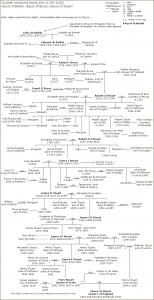 1214 Alexander II was crowned king on December 6, 1214. Alexander II.’s reign, though active, busy, and abounding in events, yet exhibits few incidents of that deeply influential character which affect future ages. These events are rather to be considered in the gross than in particular detail, and we shall revert to them hereafter, only stating here generally that Alexander’s battles chiefly took place in endeavoring to give currency to the law in those parts of his kingdom which were still Celtic.’
1214 Alexander II was crowned king on December 6, 1214. Alexander II.’s reign, though active, busy, and abounding in events, yet exhibits few incidents of that deeply influential character which affect future ages. These events are rather to be considered in the gross than in particular detail, and we shall revert to them hereafter, only stating here generally that Alexander’s battles chiefly took place in endeavoring to give currency to the law in those parts of his kingdom which were still Celtic.’
The quote above, from Sir Walter Scott’s ‘Tales of a Grandfather’ or “Scotland”, gives a flavor of Alexander II’s era. Alexander was the son of William I, the Lion of Scotland. The unfortunate sacking of Berwick by John of England took place under Alexander’s watch.
Alexander’s son Alexander 3rd died without adult surviving heirs to the crown, leading to decades of civil war in the contest for the crown.
Houses of Balliol, Bruce and Stuart (1292-1625) Wikipedia.
1593 Battle of Dryffe Sands between the Border families of Maxwell and Johnstone.
1648 Pride’s Purge of parliament begins reducing from 507 to 154.
1721 – James Elphinston, Scottish philologist (d. 1809)
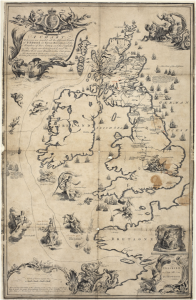 1745 – Derby. The Highland army began its retreat northward. As they marched in the grey of the morning, the men did not at first perceive in what direction they were moving; but so soon as the daylight gave them the means of perceiving that they were in retreat, an expression of deep regret and lamentation was heard among the ranks; [TG80-231] The few English insurgents by whom the Prince had been joined, were divided in opinion whether they should follow this retrograde movement, which coincided so ill with their more sanguine hopes, or remain behind, and desert the cause. Morgan, one of these English volunteers, came up to Vaughan, a gentleman of the same country, and observed, in a tone of surprise, that the army were going to Scotland; ” Be it so,” answered Vaughan, ” I am determined to go with them wherever their course lies.”-Morgan replied, with an oath, it was better to be hanged in England than starved in Scotland. He had the misfortune to be hanged accordingly, while Vaughan escaped, and died an officer in the Spanish service. [TG80-231]
1745 – Derby. The Highland army began its retreat northward. As they marched in the grey of the morning, the men did not at first perceive in what direction they were moving; but so soon as the daylight gave them the means of perceiving that they were in retreat, an expression of deep regret and lamentation was heard among the ranks; [TG80-231] The few English insurgents by whom the Prince had been joined, were divided in opinion whether they should follow this retrograde movement, which coincided so ill with their more sanguine hopes, or remain behind, and desert the cause. Morgan, one of these English volunteers, came up to Vaughan, a gentleman of the same country, and observed, in a tone of surprise, that the army were going to Scotland; ” Be it so,” answered Vaughan, ” I am determined to go with them wherever their course lies.”-Morgan replied, with an oath, it was better to be hanged in England than starved in Scotland. He had the misfortune to be hanged accordingly, while Vaughan escaped, and died an officer in the Spanish service. [TG80-231]
At Clifton, near Penrith, the Highlanders were overtaken by the Duke of Cumberland’s cavalry, but repulsed the Duke. Tytler’s Britannica 236.
http://www.nationalarchives.gov.uk/wp-content/uploads/2014/06/jacobite-timeline.jpg
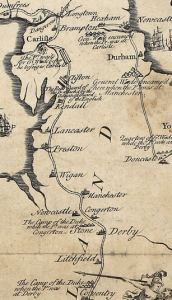 A CHART wherein are mark’d all the different Routes of P.Edward in Great Britain and the Marches of his Army and the English, The Sieges are distinguish’d and the Battles that were Fought in this Enterprise. The Chart with the Book will be very useful in History, Dates of the principle Events being mark’d with the greatest care and exactness.
A CHART wherein are mark’d all the different Routes of P.Edward in Great Britain and the Marches of his Army and the English, The Sieges are distinguish’d and the Battles that were Fought in this Enterprise. The Chart with the Book will be very useful in History, Dates of the principle Events being mark’d with the greatest care and exactness.
Road from Oxford to Coventry to Derby to Congerton, Manchester, Wigan, Preston, Newcastle, with the LAND of England.
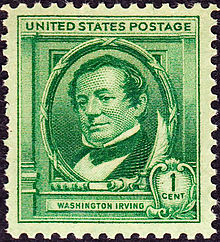 1809 Washington Irving published A History of New York under the pseudonym of Diedrich Knickerbocker, the fictional narrator of this and other Irving works, has become a nickname for Manhattan residents in general
1809 Washington Irving published A History of New York under the pseudonym of Diedrich Knickerbocker, the fictional narrator of this and other Irving works, has become a nickname for Manhattan residents in general
Washington Irving, postage stamp,1940. In 1877 Seventeen Eminent Scots’ Spirits, with Irving, appeared to and requested Baptism from Wilford Woodruff, President of the Saint George Temple, WASHINGTON, Utah 22-23 August 1877. Woodruff’s eminent men – Scots
1832 Joseph Smith the Prophet, at Kirtland, Ohio (clan Mack of Inverness, Malcolm King of Scots), Doctrine and Covenants 86. But the Lord saith unto them, pluck not up the tares while the blade is yet tender (for verily your faith is weak), lest ye destroy the wheat also.
1848 In the winter of 1848, Latter-Day Saint Scots again began to cross the Atlantic. One group came on the Carnatic, which had about 120 emigrants on board, members of the Church of Jesus Christ of Latter-day Saints.half of whom were from Scotland. These Scottish Saints arrived in the Salt Lake Valley in the fall of 1848, following a rough ocean crossing.
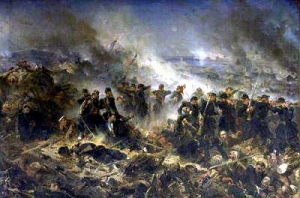 1854 The Siege of Sevastopol, Begins in September. Continues to 1855 Crimean War, Black Sea, ends in September. Scots Fusilier Guards, now the Scots Guards. 1st Royal Regiment: now the Royal Scots. 42nd Highlanders, The Black Watch. 6th Dragoon Guards: later the 6th Carabineers and now the Royal Scots Dragoon Guards. Royal Scots Greys: now the Royal Scots Dragoon Guards. 71st Highland Light Infantry, now the Royal Highland Fusiliers. 72nd Highlanders: later the Seaforth Highlands, then the Queen’s Own Highlanders and now the Highlanders. 79th Highlanders, the Queen’s Own Cameron Highlanders: later the Queen’s Own Highlanders and now the Highlanders. 90th Regiment: later the Scottish Rifles; disbanded in 1966. 93rd Regiment: now the Argyll and Sutherland Highlanders. http://www.britishbattles.com/crimean-war/sevastopol.htm
1854 The Siege of Sevastopol, Begins in September. Continues to 1855 Crimean War, Black Sea, ends in September. Scots Fusilier Guards, now the Scots Guards. 1st Royal Regiment: now the Royal Scots. 42nd Highlanders, The Black Watch. 6th Dragoon Guards: later the 6th Carabineers and now the Royal Scots Dragoon Guards. Royal Scots Greys: now the Royal Scots Dragoon Guards. 71st Highland Light Infantry, now the Royal Highland Fusiliers. 72nd Highlanders: later the Seaforth Highlands, then the Queen’s Own Highlanders and now the Highlanders. 79th Highlanders, the Queen’s Own Cameron Highlanders: later the Queen’s Own Highlanders and now the Highlanders. 90th Regiment: later the Scottish Rifles; disbanded in 1966. 93rd Regiment: now the Argyll and Sutherland Highlanders. http://www.britishbattles.com/crimean-war/sevastopol.htm
trenches during the Siege of Sevastopol
1889 Jefferson Finis Davis, (June 3, 1808 – December 6, 1889, President of the Confederacy, Secretary of War, Senator from Mississippi.
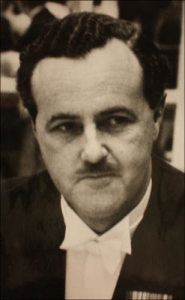 1918 Major Ian Douglas Leonard Cochrane, 14th Earl of Dundonald, born. Died October 4, 1986. He was educated at Royal Military College, Sandhurst, Berkshire, England. He gained the rank of Major in the service of the Black Watch with whom he fought in the Second World War, in North Africa, Sicily, Italy and Greece. He was chairman of Secure Holdings Ltd. He succeeded to the title of 14th Lord Cochrane of Paisley and Ochiltree [S., 1669],14th Lord Cochrane of Dundonald [S., 1647], & 14th Earl of Dundonald [S., 1669] on 23 May 1958. He held the office of Representative Peer [Scotland] between 1960 and 1986. He was chairman of the Jersey Group of Companies. www.clanmacfarlanegenealogy.info/genealogy/
1918 Major Ian Douglas Leonard Cochrane, 14th Earl of Dundonald, born. Died October 4, 1986. He was educated at Royal Military College, Sandhurst, Berkshire, England. He gained the rank of Major in the service of the Black Watch with whom he fought in the Second World War, in North Africa, Sicily, Italy and Greece. He was chairman of Secure Holdings Ltd. He succeeded to the title of 14th Lord Cochrane of Paisley and Ochiltree [S., 1669],14th Lord Cochrane of Dundonald [S., 1647], & 14th Earl of Dundonald [S., 1669] on 23 May 1958. He held the office of Representative Peer [Scotland] between 1960 and 1986. He was chairman of the Jersey Group of Companies. www.clanmacfarlanegenealogy.info/genealogy/
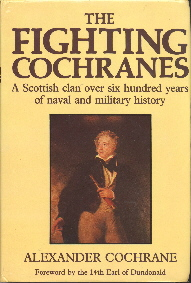 Ian Cochrane, 14th Earl of Dundonald. (1958-1986). Clans Cameron, Cochrane, Cunningham, Douglas, Drummond of Cargill and Stobhall, Grant, Halyburton, MacDonald, MacDonnell, MacFarlane, Mackenzie, Mackinnon, MacLeod of Dunvegan, MacLean of Duart and Morvern, MacMartin of Letterfinlay, MacPhee of Lochaber, Muir, Sinclair, Stewart. Son of Douglas Robert Hesketh Cochrane, grandson of Douglas Mackinnon Baillie Hamilton Cochrane, 12th Earl of Dundonald. Succeeded by Iain Alexander Douglas Blair Cochrane, 15th Earl of Dundonald (b. 1961)
Ian Cochrane, 14th Earl of Dundonald. (1958-1986). Clans Cameron, Cochrane, Cunningham, Douglas, Drummond of Cargill and Stobhall, Grant, Halyburton, MacDonald, MacDonnell, MacFarlane, Mackenzie, Mackinnon, MacLeod of Dunvegan, MacLean of Duart and Morvern, MacMartin of Letterfinlay, MacPhee of Lochaber, Muir, Sinclair, Stewart. Son of Douglas Robert Hesketh Cochrane, grandson of Douglas Mackinnon Baillie Hamilton Cochrane, 12th Earl of Dundonald. Succeeded by Iain Alexander Douglas Blair Cochrane, 15th Earl of Dundonald (b. 1961)
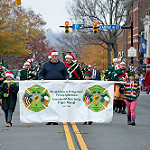 2014 SCOTTISH CHRISTMAS WALK WEEKEND 2014.
2014 SCOTTISH CHRISTMAS WALK WEEKEND 2014.
2015 45TH ANNUAL SCOTTISH CHRISTMAS WALK WEEKEND & PARAD, Alexandria Virginia. The Scottish 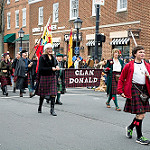 Christmas Walk Weekend & Parade is the largest fundraising activity for The Campagna Center and is coordinated and planned by The Junior Friends of The Campagna Center.
Christmas Walk Weekend & Parade is the largest fundraising activity for The Campagna Center and is coordinated and planned by The Junior Friends of The Campagna Center.
http://www.campagnacenter.org/scottishwalkweekend
Disclaimer: The author of each article published on this web site owns his or her own words. The opinions, beliefs and viewpoints expressed by the various authors and forum participants on this site do not necessarily reflect the opinions, beliefs and viewpoints of Utah Standard News or official policies of the USN and may actually reflect positions that USN actively opposes. No claim in public domain or fair use. © John Choate
Utah Standard News depends on the support of readers like you.
Good Journalism requires time, expertise, passion and money. We know you appreciate the coverage here. Please help us to continue as an alternative news website by becoming a subscriber or making a donation. To learn more about our subscription options or make a donation, click here.
To Advertise on UtahStandardNews.com, please contact us at: ed@utahstandardnews.com.


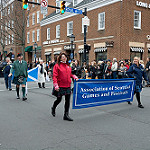
Comments - No Responses to “December 6th Scots Book of Days A.D. 326 Nicholas”
Sure is empty down here...